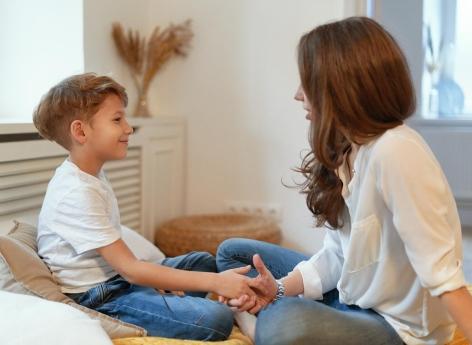In general, lies are told before the event (or action) not tolerated by the parents, while the truth is more often revealed afterward.

- In the study, 40% of young people voluntarily revealed important information to their parents.
- 53% of teens were more likely to lie before the event or action their parents wouldn’t tolerate.
- Unlike children who lied, those who voluntarily told the truth showed positive changes, such as psychological growth and better understanding of themselves.
During adolescence, children hide information from their mothers and fathers. Some even lie to them. But is this premeditated? When they decide to tell the truth, do they do it voluntarily? These are the questions asked by scientists at the University of Rochester (United States). To answer this, they decided to carry out a study published in the journal Journal of Adolescence.
As part of the work, the researchers recruited 131 adolescents and students. Participants were asked about each of three scenarios: a time when they revealed part or all of the truth, hid, or lied about an activity that their parents disapproved of or expressly forbade. The team then coded the stories based on their intentionality, timing, coherence, and lessons learned. “Parental psychological control was assessed using an online survey”she specified.
40% of teens have revealed important information of their own accord
According to the results, adolescents reveal information to their parents mainly voluntarily (40%) or strategically (47%), or for a specific purpose, for example by telling the truth about a party to which they might need to be accompanied , or preemptively because they suspect their parents will find out anyway. Unintentionally telling the truth is much less common (13%) and may involve a friend spilling the beans, the child getting a tattoo and ultimately being seen by their mother or father, or being subjected to sexual harassment. pressure from parents to say so.
Timing would also play a crucial role. Young people were more likely to lie (53%) before the event or action that their parents would not tolerate. However, they told the truth more often after they had already engaged in an activity their parents disapproved of. In detail, 35% of adolescents revealed the questionable activity shortly after, 8% lied for an extended period before telling the truth and 23% told the truth at an unspecified time. “Telling the truth after the event is associated with lessons learned”added the authors.
Voluntarily telling the truth is linked to psychological growth
Voluntarily telling the truth (or part of it) was linked to psychological growth. Clearly, adolescents reported positive changes, such as a better understanding of themselves, their purpose, their self-efficacy or their connections with others and parents. Conversely, when they told lies, young people drew more negative conclusions, such as more negative opinions, emotions or a poorer self-image.
“Do everything you can to be responsive and keep the lines of communication open so that your children tell you the truth voluntarily, without pressure. (…) Trust and good communication are particularly important, because they can mitigate negative reactions parents”, concluded Judith Smetana, lead author of the work, in a statement.















